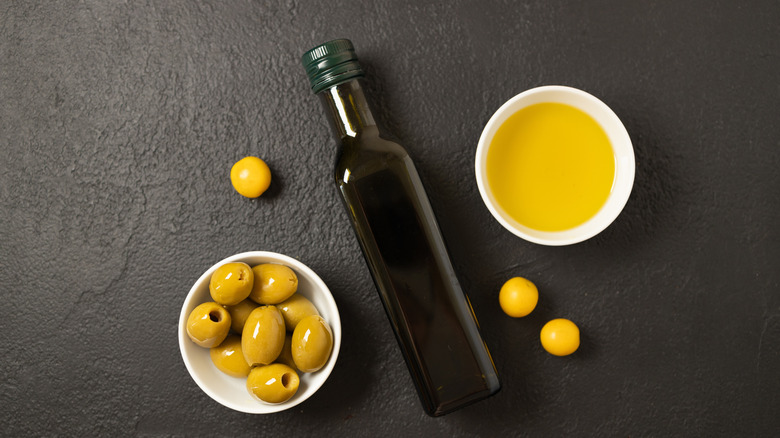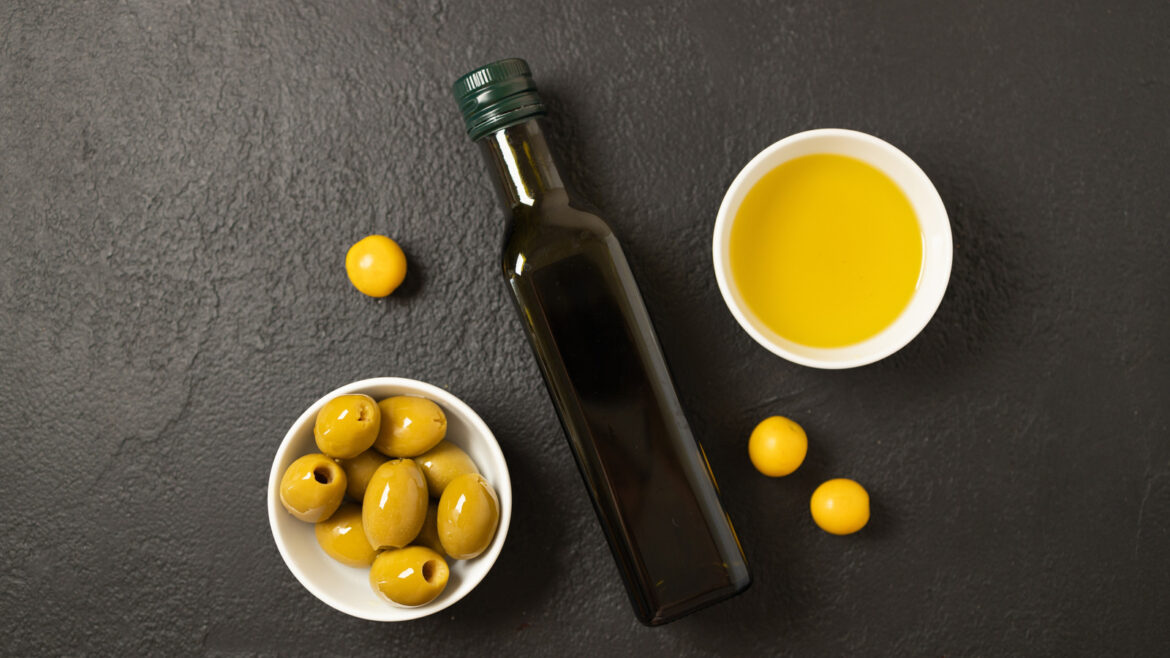
Irina Shatilova/Shutterstock
Whether you’re devoted to extra virgin olive oil or swear by its refined state, olive oil is a staple in many kitchens for a reason. In case you’re late to the party, the secret to an excellent bottle of olive oil lies in its origin, viscosity, color, and scent — and it all begins with picking the right bottle off the shelves. When we made a Costco run in search of the best Kirkland Signature brand olive oils to rank, there was one bottle which we couldn’t possibly recommend: Kirkland Signature Olive Oil.
Those who take their olive oil selection seriously will know the importance of a flavorful and top-quality bottle. The issue with Costco’s Kirkland Signature Olive Oil was that it turned out to be lighter in color than the other oils in the rankings (which suggests less potency), and lacked the oomph expected of olive oil. Its color and viscosity also matched canola oil more than olive. The weak flavor may be down to the fact that it offers only 15% extra virgin olive oil and the rest is refined. Extra virgin olive oil is praised and often preferred for its rich taste which complements dressings and dips, and the low percentage of EVOO in this bottle might be to blame for its poor ranking.
Why Kirkland Signature Olive Oil falls flat
Olive oil is the type of product that food critics and acclaimed chefs alike make a big deal about — and for good reason. The better the quality, the better the meal (there’s a reason professional chefs carefully taste-test olive oil to ensure they’ve picked up something worthwhile). While Costco does stock some premium bottles of olive oil that are rich-tasting, offering a range of notes from buttery to floral, this bottle failed to make an impression. Good olive oil also comes with a noticeable aroma, but this Costco version gave off a mild scent which might be also responsible for its barely-there taste.
The fact that Costco opted for a clear plastic bottle rather than a dark one for this olive oil was another sign that it wasn’t going to stand a chance against the other offerings. Darker bottles are better for olive oil since they prevent oxidation — a process which causes the oil to turn rancid. It’s also better for olive oil to be stored in a glass bottle rather than a plastic one since the latter can cause polyphenol content deterioration and potential microplastic contamination, leading to less health and taste benefits. If you want your olive oil to last long over time and wow you when drizzled over your dishes, it’s probably best to leave this bottle on the shelves.


Dining and Cooking